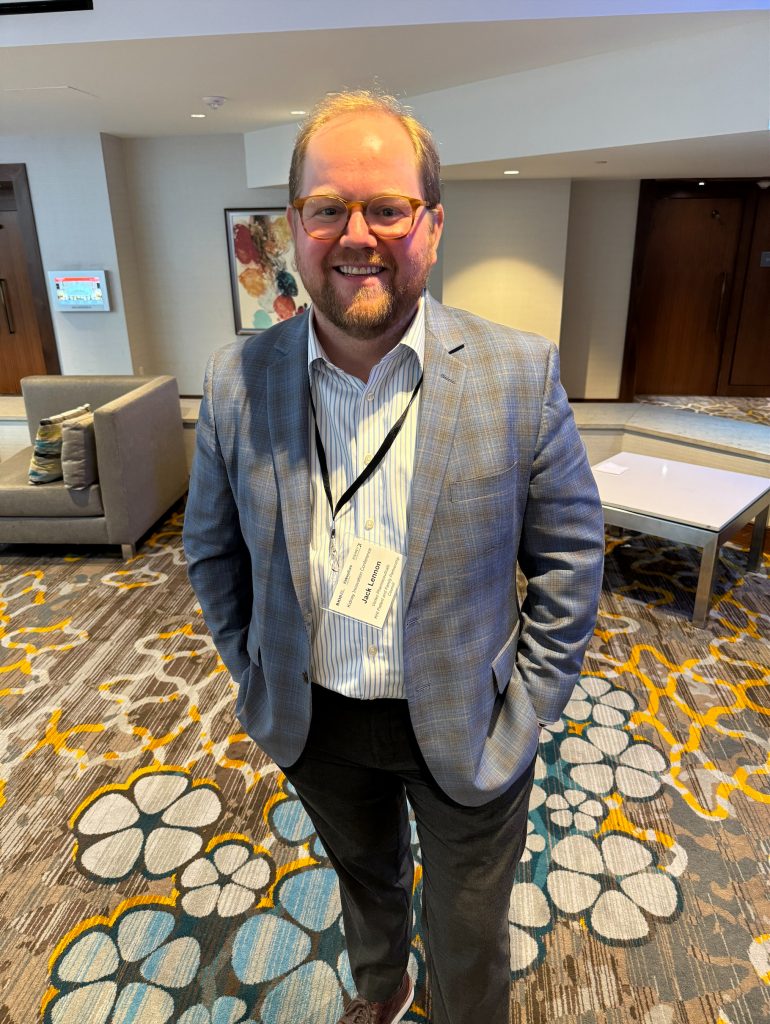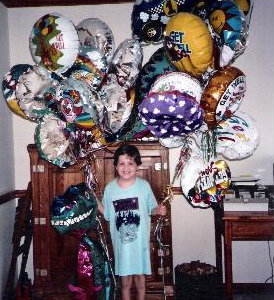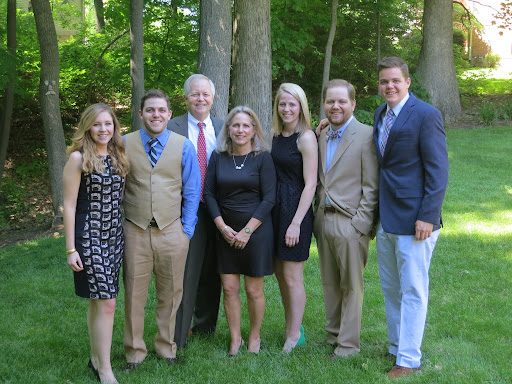Born With It
You could say Jack Lennon was born with it. “It” being kidney disease that developed at birth due to being born with Post-Urethral Valves (PUV). But he was also born with “it”, as in a loving family who would be on board throughout the good times and bad as he navigated kidney disease throughout his life. He’s also been fortunate to have amazing doctors, nurses, and others who have joined the journey with him and his family to help him live his best life. And, as you’ll read below, Jack was born with a joyful nature and positive outlook that seems to have carried him through the difficult times.
Embracing Kidney Disease as a Family
At birth, when the delivery doctor saw that Jack had a distended stomach with urine backed up in it, he was rushed to nearby Riley Children’s Hospital in Indianapolis with his dad following closely behind the ambulance. While hospitalized, one of his kidneys became infected and he had a Nephrectomy to remove the kidney.

Early life challenges from PUV, and the resulting damage to his kidneys, were numerous including seizures and a problematic urinary tract that did not drain well. As a baby and child, he needed to take medications and self-catheterize to drain urine. Jack shares that while this was his disease, his whole family including his parents and four siblings became involved in his ongoing care at home. Jack states, “It was a family affair. Everybody was impacted and shared the responsibility for taking care of me. My mom was not the only one to nag me!”
When he was two years old the family moved to Cincinnati, Ohio for his father’s job. Jack began receiving his care at Cincinnati Children’s Hospital. He recalls that the hospital would host a holiday party for the patients and their families each December. His whole family would attend this event and it became a memorable and fun tradition to kick off the holiday season. He states, “While it was not always the best experience having kidney disease, there was also some family joy that came from it when I was doing well.”
Pediatric Kidney Transplantation
In 1995, at the age of seven, Jack received a pre-emptive kidney transplant from his dad. This first transplant would last for 15 years and take Jack through childhood, teenage years, and into college. Even with his kidney transplant, Jack remembers feeling unlike the other kids. As much as his doctor or parents told him “You’re just like the other kids” or “You can do anything the other kids can do,” Jack still felt different. The steroids he took to maintain his kidney transplant caused him to be puffy and hairy or “fuzzy”. In school, he went to the nurse every day to self-catheterize and take medication. Jack says that the school nurse, Mrs. Wolfenberger, as well as many of the others involved in his care, including his pediatric nephrologist, became lifelong friends and like part of the family.
Although Jack liked sports and was competitive, especially with his older brother, he had to sit out of the sports he was interested in most like football and soccer because they were high impact. He was often bored watching his brother play sports or sitting in the waiting room for all the doctor’s appointments, so he started creating art. His love for drawing led him to pursue a degree in graphic design after high school.

Pre-emptive Transplant is when a patient gets a transplant before they have to go on dialysis. Studies show this can result in better kidney and health outcomes. This type of transplant is more likely if a person has a living donor. The sooner you learn about your treatment choices, the better. This will give you time to decide if a transplant is best for you.
During the Thanksgiving break of his sophomore year of college, Jack started not feeling well. His lab results revealed that his creatine was high, and he went to the emergency room where he learned that his kidney transplant stopped functioning well. He was not able to return to college classes at that time, and he started hemodialysis three days a week at Cincinnati Children’s Hospital.
In 2008, after four months on dialysis, Jack’s mom became his second living kidney donor. She had been tested for compatibility when Jack was a child, before his first transplant from his dad, and found out she was also a good match. This time, Jack’s older brother was now old enough to be tested too. He was found to be a perfect match, however, at the time of testing, there were concerns about cysts found on his kidney.
A Career with Kidney Patients
His second living donor transplant from his mom lasted Jack five years. During this time Jack started taking college classes again, and he also began volunteering at Cincinnati Children’s Hospital. Inspired by his volunteer work, he decided to switch his degree path to marketing, hoping to continue working with patients and in a hospital setting. After graduating with his bachelor’s degree, Jack started a graduate program and got a full-time position with Cincinnati Children’s Hospital as an Operations Coordinator
in the division of Nephrology, getting an opportunity to work with the same doctors and nurses who had taken care of him since he was a kid.

His schooling and career path were going well, but Jack says he had a lot of rejection with his mom’s donated kidney, including antibody-mediated rejection. One day after not feeling well at work, Jack consulted his Nephrologist co-workers about his symptoms and ended up going to the emergency room where his creatine level was extremely high at 28. Unfortunately, Jack lost the kidney and went back on hemodialysis. He was on hemodialysis for several months and even tried peritoneal dialysis (PD) during this time, but it was not a good fit for him (due to the many surgeries he had previously).
In April 2014, Jack received his third transplant from his older brother who was a perfect match and cleared to donate. The cysts that were seen on his brother’s kidney had been watched over five years and went down in size and were no longer deemed a problem. With his new kidney working well, Jack’s career continued at Cincinnati’s Children’s Hospital Division of Nephrology in operations and then in strategy and growth. While he was there, he assisted with developing the Improving Renal Outcomes Collaborative (IROC), a network-based learning health system for patients and families, clinicians, and researchers from 30+ pediatric kidney transplant programs across the country. He served as Executive Director at IROC for several years and is now working on the APOL1-mediated kidney disease (AMKD) program at Vertex Pharmaceuticals, a biotech company that focuses on scientific innovation to create transformative medicines for individuals living with serious
diseases.
Tips For Patients and Families
Jack has a very special place in his heart for children struggling with kidney disease. He offers these tips to our pediatric care partners and young adult readers:
• Normalize Bringing Your Mom (or anyone you choose). As a pediatric patient you have a lot of advisors, and as you transition to adult care, why should that change? Jack says, “Why can’t your mom still come with you to appointments? Let’s normalize having that support indefinitely — whether that be your mom, your school nurse, your sibling, significant other or whoever it is that is there for you. We all need all the help we can get.”
• You’re The Expert. If something seems off be empowered to be the expert. Jack explains that doctors only see you for a very small fraction of the time, but you are there every second of every day. You know yourself and your body better than anybody.
• Lean Into It. Jack states, “Kidney disease is not the end of the world. I am the person I am because of this condition. I’m lucky to have turned my experience into an exciting and fulfilling career making care better for the next person struggling with kidney disease. If you lean into it, it can teach you many life lessons and provide you with a lot of unique opportunities.”


















